The story of the College of Charleston’s Avery Research Center for African American History and Culture is one of resilience.
The center, originally built in the 1860s to house the first accredited secondary school for African Americans in Charleston, has weathered the storms of time for more than 153 years. But these past few months have presented new, unprecedented challenges for the Avery as it grapples with how to transform its research services and public programming to an entirely virtual platform.
After being closed to the public for more than two years, the Avery Research Center reopened in January — only to be forced to close again two months later as schools and businesses shuttered to mitigate the spread of COVID-19.
On March 12, the day the center shut down, more than 600 people were expected to come through the center, some for a new exhibition that night and others for a field trip and further programming during the day, said Daron Lee Calhoun II, the Avery's facilities, outreach, and public programming coordinator.
“People were excited to come back to the Avery, and we were excited, too,” he said. “Everything just had to shut down, and now we have no idea when we're going to open back up, because we’re not going to open back up until it is safe to do so.”
Unprecedented challenges
Leaders at the Avery Research Center and the College of Charleston said one of the most challenging aspects of its public closure has been the inability to host in-person gatherings. During times of crisis, the building has long served as a meeting space, cultural hub and public forum for those hoping to discuss the issues of the day.
That's because the oppression and struggles African Americans faced in the past can't be taught in a vacuum, Calhoun said. When the center talks about school desegregation in the 1960s, it can't be addressed without also mentioning the racial divides still present in the Charleston County School District.
"When we talk about our history we always connect it to the current disparity or what people are facing today," he said.
That's especially true now, he said, as African Americans are disproportionately contracting and dying of the coronavirus.
"This is nothing new. This example right now, and now people can see it directly in their face because we have a global pandemic disproportionately hurting the African American community," Calhoun said.
And as the nation grapples with the death of George Floyd at the hands of Minneapolis police, hundreds of Charleston residents took to the streets to protest police brutality and the lingering effects of racism. During this time, the Avery Research Center is an essential resource for making connections between the past and the present, said College of Charleston President Andrew Hsu.
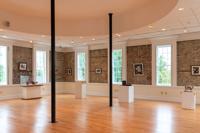
The day the center shut down, hundreds were expected to visit the Avery building. There was an exhibition set to open later that night. Avery Research Center/Provided
"As our nation struggles to confront and address longstanding and systemic issues of racism and intolerance, institutions such as the Avery Center have a critical role in providing historical context around current events and reminding us of the many sacrifices and achievements of African Americans throughout history," Hsu said.
Hsu commended the Avery's ongoing efforts to continue providing educational resources and support to the public throughout their closure.
"The center’s value as a hub for research and education became especially evident during the recent renovation, as the college community and the public at large desperately missed having access to this extraordinary public asset," he said. "I’m so proud of the center’s leadership and staff who worked tirelessly to bring the center back online."
But the transition to virtual research and outreach hasn’t been without obstacles.
Once the Avery closed to the public in mid-March, staff have been working to process archival collections, transition to a new archival management system and develop virtual programming, said Aaisha Haykal, manager of archival services.
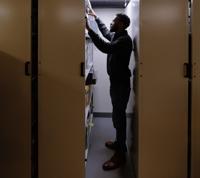
The Avery Research Center for African American History and Culture underwent two years of extensive renovations. It reopened to the public in January, only to close to the public again in March to prevent the spread of the coronavirus. Avery Research Center/Provided
To minimize physical contact with the public, research assistance at the Avery Center is still provided to College of Charleston students, faculty, and staff as well as to external scholars, but it's conducted exclusively via email and phone. Once they know what information researchers are interested in, staff at the Avery go into the archives, locate the information, scan it and email it to them.
"We need the researcher to be specific about what they are looking for because we are limited by the time we can commit to each research request," Haykal said. "This has resulted in us shifting our process, as archival research has historically been done in person with researchers conducting their own research by physically viewing and touching materials, and we as information professionals ... talk in person about their research and information needs."
Also a challenge: It takes more time, planning and effort to create meaningful connections in a virtual realm.
“We are living in a moment where the resources, the history, the collection today are needed more than ever, and we can't just invite people in to see them,” said John White, the College of Charleston's dean of libraries. “We have to do a lot of preparation and we have to do a lot of study and work ahead of time in order to pull it off.”
Navigating the intricacies of the digital realm safely also comes with its own set of unanticipated challenges, as Avery leaders discovered in late April when a virtual documentary screening quickly took a sinister turn. Anonymous internet trolls twice hijacked the screen, spewing violent and racist hate speech to dozens of community elders and activists who had signed on to watch before the screening was ultimately canceled.
As a result, the center quickly switched all of its public online events to a different, more secure streaming software.
“This is the new normal, and we still have to find a way to reach our community and keep them in a safe place," Calhoun said.
Renovation hurdles
The most recent project was probably the most extensive and expensive renovation the center has seen since it was first built, Calhoun said. It was supposed to be a quick, six-month renovation. Instead, it stretched on for over two years.
Making its closure even more difficult: The center is one of the only physical spaces solely dedicated to African American history and culture in the Charleston area, White said.
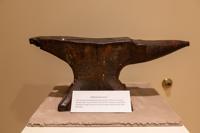
An anvil use by three generations of blacksmiths, including Philip Simmons, is on display at the Avery Research Center for African American History and Culture. Avery Research Center/Provided
“It is not just a historic building ... but it’s a thriving and active research center and community hub,” White said.
The center’s reopening in January represented the culmination of five or six years' worth of work via lobbying, fundraising and planning. And the renovations were long overdue.
“We needed to fix the bones of the center,” Calhoun said.
The $2.3 million project included repairs to the roof and exterior walls, as well as new windows and new HVAC systems. A $100,000 “sorely needed” shelving system also was installed to help better preserve documents and artifacts.
“We can't be a world class institution without having the necessary precautions in place to protect those things,” Calhoun said.
The center began limiting its public services in October 2016 to prepare for the renovations, Calhoun said, but funding delays and construction hurdles meant that the center didn’t fully close to the public until the end of 2017.
But during that time, public programming and outreach never ended, Calhoun said. The center was able to host lecture series, documentary screenings and public exhibitions at the library.
Still, he said, he missed being able to host public events at the center.
“Being in a place that was built for formerly enslaved Africans and built for black people, particularly by black people, that means something,” he said.
The building, constructed in the 1860s, was built by formerly enslaved African bricklayers, he said.
“To do a program inside of our auditorium, between those walls where we could still see those fingerprints, it means something, because we are honoring who built this place for us.”
While the college will likely resume in-person classes in the fall, the Avery Center will not be offering public tours, Calhoun said. A new executive director will officially take the helm Aug. 15.
"center" - Google News
June 08, 2020 at 03:00AM
https://ift.tt/2Um9rNf
After extensive renovations, Charleston's Avery Center forced to close again amid pandemic - Charleston Post Courier
"center" - Google News
https://ift.tt/3bUHym8
https://ift.tt/2zR6ugj
Bagikan Berita Ini
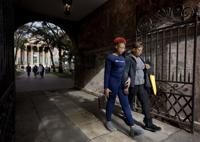

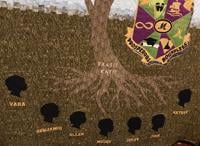














0 Response to "After extensive renovations, Charleston's Avery Center forced to close again amid pandemic - Charleston Post Courier"
Post a Comment